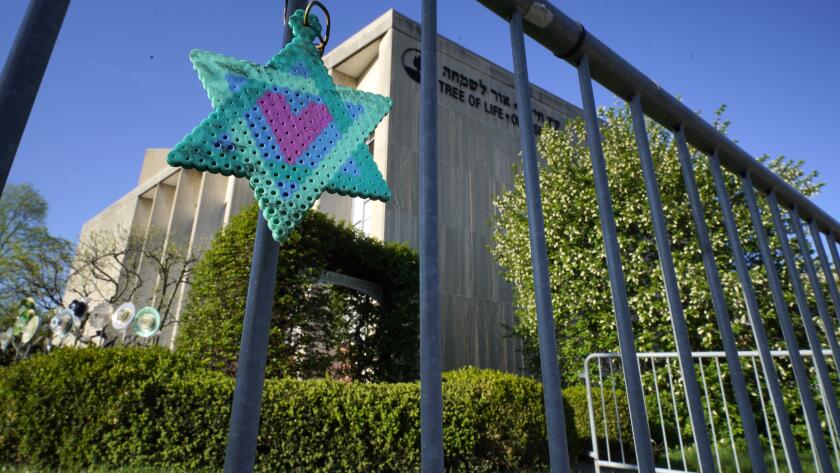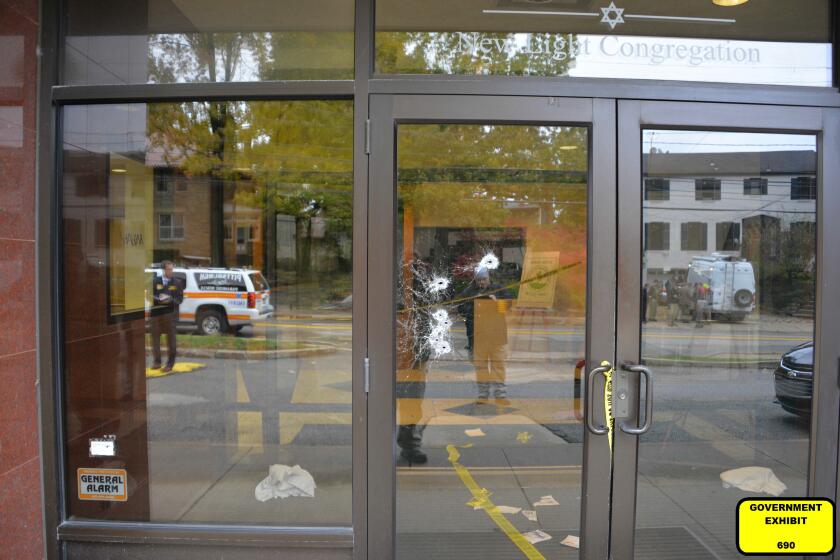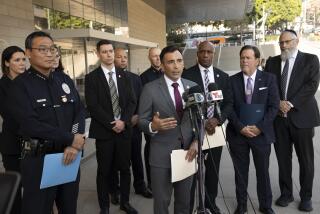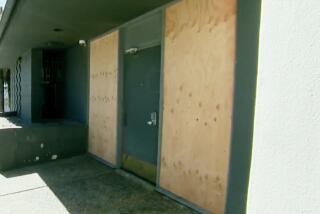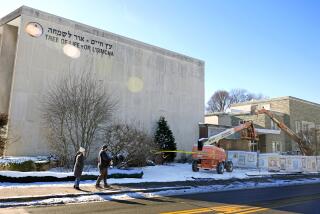Truck driver guilty of killing 11 at Pittsburgh synagogue
- Share via
Robert Bowers expressed his hatred of Jews, barging into a Pittsburgh synagogue on the Jewish Sabbath and fatally shooting 11 congregants.
- Share via
PITTSBURGH — A truck driver who expressed hatred of Jews was convicted Friday of barging into a Pittsburgh synagogue and shooting everyone he could find, killing 11 congregants in an act of antisemitic terror for which he could be sentenced to die.
The guilty verdict was a foregone conclusion after Robert Bowers’ own lawyers conceded at the trial’s outset that he attacked and killed worshipers at the Tree of Life synagogue on Oct. 27, 2018, in the deadliest attack on Jews in U.S. history. Jurors must now decide whether the 50-year-old should be sent to death row or sentenced to life in prison without parole as the federal trial shifts to a penalty phase expected to last several weeks.
Bowers was convicted of all 63 criminal counts he faced, including hate crimes resulting in death and obstruction of the free exercise of religion resulting in death. His attorneys had offered a guilty plea in return for a life sentence, but prosecutors refused, opting instead to take the case to trial and pursue the death penalty. Most of the victims’ families expressed support for the decision.
The jury deliberated about five hours over two days before reaching a verdict.
A gunman who killed 11 worshipers at a Pittsburgh synagogue ranted incessantly on social media about his hatred of Jews before the 2018 attack.
Bowers turned a sacred house of worship into a “hunting ground,” targeting his victims because of their religion, a prosecutor told jurors on Thursday. Reading the names of each of the 11 victims Bowers killed, prosecutor Mary Hahn asked the jury to “hold this defendant accountable ... and hold him accountable for those who cannot testify.”
Bowers, who was armed with an AR-15 rifle and other weapons, also shot and wounded seven, including five responding police officers.
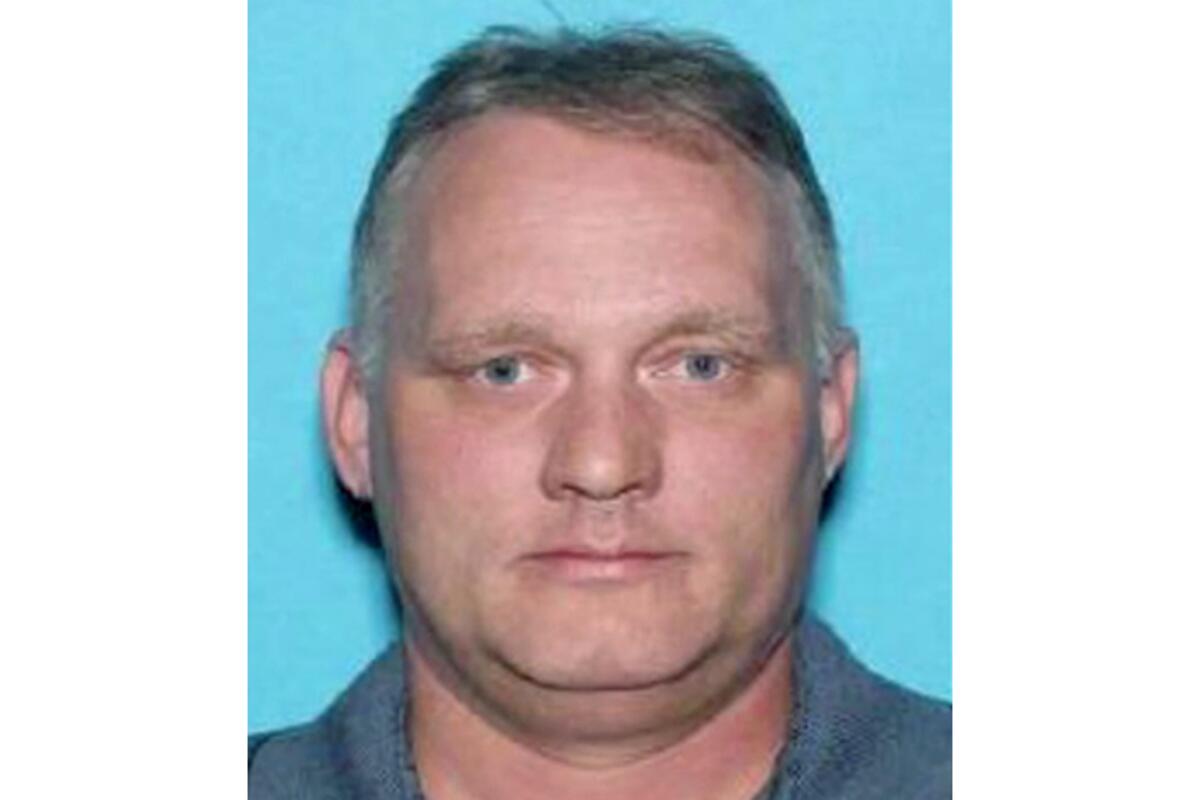
Prosecutors presented evidence of his deep-seated animosity toward Jews and immigrants. Over 11 days of testimony, jurors learned that Bowers had extensively posted, shared or liked antisemitic and white supremacist content on Gab, a social media platform popular with the far right, and praised Hitler and the Holocaust. Bowers told police that “all these Jews need to die,” Hahn said.
Survivors testified about the terror they felt that day, including a woman who recounted how she was shot in the arm and then realized her 97-year-old-mother had been shot and killed right next to her. Andrea Wedner, the trial’s last witness, told jurors she touched her mother’s lifeless body and cried out, “Mommy,” before SWAT officers led her to safety.
With Bowers’ guilt established, survivors and family members of the deceased victims are expected to tell the jury about the devastating impact of his crimes. The penalty phase is scheduled to start one week after the verdict.
Jury deliberations begin in the trial of a man who in 2018 killed 11 worshippers at a Pittsburgh synagogue in the nation’s deadliest attack on Jews.
Bowers’ attorneys did not mount a defense at the guilt stage of the trial, signaling they will focus their efforts on trying to save his life. They plan to introduce evidence that Bowers has schizophrenia, epilepsy and brain impairments. Defense lawyer Judy Clarke had also sought to raise questions about Bowers’ motive, suggesting to jurors that his rampage was not motivated by religious hatred but his delusional belief that Jews were committing genocide by helping refugees settle in the United States.
The three congregations that shared the synagogue building — Dor Hadash, New Light and Tree of Life — have spoken out against antisemitism and other forms of bigotry since the attack. The Tree of Life congregation also is working on a plan to overhaul the synagogue building — which still stands but has been closed since the shootings — by creating a complex that would house a sanctuary, museum, memorial and center for fighting antisemitism.
The trial took place three years after President Biden said during his 2020 campaign that he would work to end capital punishment at the federal level and in states that still use it. His attorney general, Merrick Garland, has temporarily paused executions to review policies and procedures. But federal prosecutors continue to vigorously work to uphold already-issued death sentences and, in some cases, to pursue the death penalty at trial for crimes that are eligible, as in Bowers’ case.
Associated Press reporter Michael Rubinkam in northeastern Pennsylvania contributed to this report.
More to Read
Sign up for Essential California
The most important California stories and recommendations in your inbox every morning.
You may occasionally receive promotional content from the Los Angeles Times.
